Federal Judge: Rhode Island's Climate Fraud Lawsuit Against Big Oil Belongs in State Court10/31/2020 Story originally published by Drilled News
A federal judge has ruled that Rhode Island’s climate liability case against 21 oil and gas corporations belongs in state court, where the state originally filed it in 2018. The Oct. 29 decision by the U.S. 1st Circuit Court of Appeals aligns with three other federal appeals court decisions this year in similar climate lawsuits against Big Oil. Rhode Island is one of two dozen communities around the country suing the fossil fuel industry for its decades of deliberately misleading the public about the risks associated with burning coal, oil, and gas. Like the others, Rhode Island is seeking to hold the industry accountable for the billions of dollars in costs it now faces to contend with climate change impacts including higher temperatures, more extreme rainfall and flooding, and coastal erosion caused by rising seas. According to a 2017 state report, Narragansett Bay's warming temperatures have already begun to cause a shift from cold-water to warm-water marine species, driving down populations of key fisheries like lobster and winter flounder. Chevron, ExxonMobil, BP, Shell, and other petroleum firms have fought to move climate lawsuits by states and municipalities to federal courts, where they believe they have a better chance of fending them off. In early October the Supreme Court granted the industry’s petition to review a wonky procedural question in a climate lawsuit brought by the city of Baltimore, regarding how broadly the firms can make their arguments for shifting these cases to federal court. That question was also among those at play in the Rhode Island case, where federal Judge O. Rogeriee Thompson ruled that the correct scope of such review was a narrow one: whether there was merit in the companies’ argument that their contracts with the federal government to extract oil and gas on federal lands rendered them “federal agents,” and thus protected from legal actions in state or local courts. Thompson rejected that claim, as federal appeals court judges have in three other climate cases this year, calling it a “mirage” that has no relevance to Rhode Island’s charges of what is effectively fraudulent commercial behavior. “Rhode Island is alleging the oil companies produced and sold oil and gas products in Rhode Island that were damaging the environment," Thompson wrote in her decision, "and engaged in a misinformation campaign about the harmful effects of their products on the earth's climate. The contracts the oil companies invoke as the hook for federal-officer jurisdiction mandate none of those activities.” During a hearing on Sept. 11, 1st Circuit judges repeatedly questioned Chevron attorney Ted Boutrous as he sought to downplay Rhode Island’s allegations of deception. This week the court has stated clearly that this deceitful conduct is at the core of the lawsuit. “Rhode Island's claim is simple: the oil companies knew what fossil fuels were doing to the environment and continued to sell them anyway,” Thompson noted, “all while misleading consumers about the true impact of the products.” Big Oil's disinformation campaign helped delay response to climate change and turn it from a science-informed policy question into a political wedge issue — one that President Trump has used in the past four years to cripple federal climate science, further subsidize the fossil fuel industry, and roll back Obama-era reforms on auto emissions, methane pollution from drilling sites, and protection of endangered species and remaining wilderness from oil and gas development. The DRILLED podcast explores this "true crime story," which has also been investigated by InsideClimate News and the Los Angeles Times, and documented by historians Naomi Oreskes and Erik Conway in their book Merchants of Doubt. Emily J Gertz contributed reporting to this story.
0 Comments
Story originally published by DeSmog
The Federal Court of Canada has decided to dismiss a climate lawsuit based on constitutional rights and brought by 15 young Canadians against the federal government. The decision, issued October 27, effectively denies the youths the chance to present their case and the supporting climate science at trial. “I am incredibly disheartened by the court’s ruling,” Lauren, a 16-year-old plaintiff from Saskatoon, Saskatchewan, said in a press release. “As a young Canadian whose rights are being violated, having the court grant the government’s motion to strike is very upsetting, and I feel that my rights to a safe and healthy future are not being taken seriously by those in power.”
This youth climate lawsuit, La Rose v. Her Majesty the Queen, is the Canadian version of the landmark American case Juliana v. United States. Both cases are brought by young people against their national governments challenging the governments’ responses to climate change and actions supporting fossil fuels, claiming that youths’ constitutional rights are being violated as the climate crisis worsens. The Juliana case survived multiple attempts by the U.S. government to prevent the lawsuit from moving to trial, but a federal appeals court reluctantly ruled to dismiss the case in January this year. A federal district judge in Oregon rejected the government’s initial bid to dismiss on November 10, 2016, ruling the day after Donald Trump won the election that the 21 Juliana youth plaintiffs should get their day in court.
Now, nearly four years later, Justice Michael D. Manson of Canada’s Federal Court has refused to allow the Canadian youth plaintiffs their day in court. He determined the youths’ case “fails on the basis that there are some questions that are so political that the Courts are incapable or unsuited to deal with them.” This “political question” interpretation of climate change lawsuits by courts has been a barrier to communities and citizens seeking justice through the judicial system in the face of an unfolding climate emergency that governments are largely failing to mitigate. Young people — teens and children who are not able to vote — are increasingly turning to the courts in efforts to hold governments accountable for this failure. The youth argue that their very lives and futures, indeed their fundamental rights protected by legal regimes like constitutions, are endangered by the climate crisis. The 15 young Canadians of the La Rose case sued Canada in October 2019, alleging that the federal government, through actions supporting fossil fuels and failing to rapidly slash greenhouse gas emissions, is harming them as the climate crisis, caused primarily by fossil fuel emissions, gets progressively worse over time. Canada continues to subsidize the fossil fuel industry and in 2018 the government even purchased the controversial Trans Mountain tar sands pipeline from the Texas-based Kinder Morgan, for example. Specifically, the youth say that Canada is violating sections 7 and 15 of the part of Canada’s constitution called the Canadian Charter of Rights and Freedoms. Section 7 protects rights to life, liberty, and security of the person while section 15 is about equal protection under the law. Additionally, the youth argue that Canada is breaching its responsibility to protect vital natural resources under a legal theory called the public trust doctrine. Lawyers for the Canadian youth say their case is grounded in climate science, because the science indicates that heat-trapping emissions worldwide are way beyond what is considered a “safe” limit. The youth plaintiffs are seeking a court order for the Canadian government to develop and implement a plan guided by the science to drastically slash the country’s greenhouse gas emissions. Canada challenged the youth lawsuit, requesting the court squash the case before it could go to trial. A two-day hearing on this request, called a motion to strike, occurred on September 30 and October 1. Justice Manson agreed with the federal government that the youths’ case challenging the entirety of Canada’s conduct relating to climate and energy issues is overly broad and not justiciable, meaning not a case that is suitable for the courts. As Justice Manson wrote in his decision, “the diffuse nature of the claim that targets all conduct leading to [greenhouse gas] emissions cannot be characterized in a way other than to suggest the Plaintiffs’ are seeking judicial involvement in Canada’s overall policy response to climate change.” He said it is not the role of courts to scrutinize overall policy choices. The Canadian youth plaintiffs and their lawyers say they plan to appeal this ruling. “It is an affront to justice that when children are being harmed by specific legal actions their government has taken, they have no recourse,” Andrea Rodgers, Senior Litigation Attorney with Our Children’s Trust, a nonprofit law firm that supports youth climate cases, including the Juliana case, said in a press release. “It is a sad day for Canada and democracies around the world, and judicial restraint in the face of the climate crisis will one day be seen as one of the world’s great follies. For these children’s sake, we are hopeful that this miscarriage of justice will be corrected on appeal.” Albert Lalonde, an 18-year-old plaintiff from Montreal, Quebec, added that the youth are not giving up in their quest for justice on climate change. “If courts can't rule in favor of justice, then who can? I hope the Court of Appeals will agree with me,” he said in a statement. “Whatever happens, we will not make it possible for them to keep threatening our ability to live. There is just no other option.” Swiss Seniors Take Their Climate Case Against Switzerland to European Court of Human Rights10/27/2020 After unsuccessful attempts to sue the Swiss government through Switzerland’s court system challenging the government’s insufficient climate policies, a group of Swiss senior women are taking their case to the European Court of Human Rights. This will be the second climate change case filed before the international human rights court in recent months, with a group of Portuguese youth lodging a complaint in September against 33 European countries including Switzerland.
The Swiss seniors say their fundamental rights and their health are at risk from the worsening climate crisis and associated impacts, particularly extreme heat. They formed a group called Senior Women for Climate Protection Switzerland and in 2016 launched a legal challenge to their government’s climate policies, which they say don’t go far enough to slash greenhouse gas emissions that are driving climate breakdown. Swiss courts have dismissed the women’s case, however, prompting the group to turn to the European Court of Human Rights. The Swiss senior women announced their submission to this court, located in Strasbourg, France, on October 27. An official legal filing will take place in the coming weeks. According to a press release from Greenpeace International, which is supporting the case, a delegation of Senior Women for Climate Protection Switzerland has sailed the Rhine River from Basel to Strasbourg onboard the Greenpeace ship MV Beluga-II, to make a symbolic in-person delivery of their claim to the European Court of Human Rights. The senior women were joined in Strasbourg by representatives of other landmark climate cases such as the French case “L’Affaire du Siècle” (Case of the Century). Georg Klingler, climate campaigner at Greenpeace Switzerland, said this case is part of a growing chorus of demands for action in the face of a climate and health emergency “Greenpeace Switzerland has helped the senior women to build their case because it’s clear that the climate crisis is a public health crisis,” he said in the press release. “Despite enjoying a reputation as human rights champions, the Swiss government and courts have completely dismissed the plea for justice in the face of the climate emergency. Seniors, youth, women and many other groups keep raising the climate alarm here and around the world. When will governments act for the well-being of their people?” An increasing number of climate court cases around the world, many of them in Europe, are challenging national governments’ climate policies and targets to rein in emissions because they are not protective enough to prevent dangerous warming and do not align with the goals of the Paris Climate Agreement that aims to limit warming to well below 2 degrees C. The Swiss lawsuit specifically argued the government’s emissions reduction targets (under discussion at the time of initial filing) of 20% below 1990 levels by 2020 and 30% by 2030 were insufficient and called for stronger emissions cuts of at least 25% (below 1990 levels) by 2020 and at least 50% by 2030. The lawsuit claimed that failure to take stronger climate action constituted violations of the Swiss constitution and of the European Convention on Human Rights. The Swiss Federal Administrative Court rejected the senior women’s claims in a 2018 ruling, and in May 2020 the Swiss Supreme Court upheld that ruling. The Supreme Court determined that a violation of human rights could not be claimed until the Paris Agreement’s long-term temperature goal is exceeded, according to a Greenpeace summary of the ruling. “With climate change increasingly getting out of control, we cannot wait for politicians to decide when it will be convenient for them to protect fundamental rights. Human rights are the guardrails of governmental action, so our courts must do their best to preserve those rights. That is why the board is proposing to our more than seventeen hundred members to take our legal claim to Strasbourg now,” Rosmarie Wydler-Wälti, Co-President Senior Women for Climate Protection Switzerland,” said in a press release responding to the Supreme Court decision earlier this year. “Our demand for the Swiss government is simple: protect our health in the face of the climate crisis,” Wydler-Wälti said in the press release announcing the submission to the ECHR. “The absurd logic of the national courts is that we cannot seek protection until it’s too late, so we’re taking Switzerland to the European Court of Human Rights.” In a divided ruling issued on October 22, the Oregon Supreme Court decided the state of Oregon does not have a duty to protect its vital natural resources such as the atmosphere and water under a legal theory called the public trust doctrine in the face of the climate crisis. The long-awaited decision comes in a lawsuit, originally filed in 2011, by Oregon teens Olivia Chernaik and Kelsey Juliana against the state government over climate change and environmental degradation.
This case is one of a handful of pending legal challenges at the state level brought by young people against their government seeking to compel more aggressive action on climate change that is guided by climate science. These climate cases have faced an uphill battle and have mostly been dismissed. While the Supreme Court majority ruled against the youth plaintiffs in the Oregon case Cherniak v. Brown, Chief Justice Chief Justice Martha Walters wrote a dissenting opinion arguing that the court should not shirk its responsibility to determine violations of law even if a case involves a complex issue like climate change. “The complexity of an issue may make a judicial decision more difficult, but it does not permit this court to abdicate its role,” Justice Walters wrote. The Oregon youths’ case is grounded in the public trust doctrine, a legal principle dating back to Roman law establishing that certain natural resources are held in the “public trust” for enjoyment by all and that the state as sovereign as an obligation to protect these resources. The youths argued that Oregon must be held accountable for protecting its natural trust resources, including water, wildlife and the atmosphere, from climate change that disproportionately imperils younger generations. Plaintiffs sought a court order declaring that Oregon is violating its public trust duty and requiring the state government to implement a science-based climate recovery plan to reduce greenhouse gas emissions. Oregon’s Supreme Court took up the case following a ruling by the Court of Appeals in January 2019 determining the public trust doctrine imposes no affirmative duty on the state to protect natural resources. A hearing took place before the state’s highest court in November 2019 and nearly a year later the court issued its decision, ultimately affirming the ruling by the Court of Appeals. The Supreme Court majority rejected the plaintiffs’ claim that the public trust includes resources beyond navigable waters and submerged lands, though the court did say the doctrine may evolve to become more expansive in the future. Justice Walters in her dissent argued the court shouldn’t sit back and wait, writing: “the time is now.” The majority further concluded that the public trust doctrine does not impose a duty on the state to protect its natural resources in the way the plaintiffs argue it does. Justice Walters again disagreed and explained that the majority had misinterpreted or reframed the plaintiffs’ argument to reach their conclusion. The chief justice plainly asserted that courts have a role to play in addressing climate harms. “How best to address climate change is a daunting question with which the legislative and executive branches of our state government must grapple,” she wrote. “But that does not relieve our branch of its obligation to determine what the law requires.” “The dissent by Chief Justice Walters is written as a majority opinion,” University of Oregon Law Professor Mary Wood, a public trust law expert, said in a press release responding to the decision. “It clearly illuminates the constitutional duty of the courts to hold the political branches accountable — which is paramount before those branches walk this nation over the climate cliff.” Courtney Johnson, an attorney for the plaintiffs, said they are “considering a petition for rehearing in light of the majority’s mischaracterization of our case and the errors of law addressed by the Chief Justice.” Story originally published by DeSmog During her Senate confirmation hearing on Tuesday, October 13, Supreme Court nominee Amy Coney Barrett trotted out a tired and dismissive refrain from climate deniers, saying, “I’m certainly not a scientist” when Senator John Kennedy (R-LA) asked specifically about her views on climate change. After Barrett said she doesn’t have “firm views” on the subject, Senator Richard Blumenthal (D-CT) pressed her on those views during the hearing Wednesday, where she continued to dodge the question. “I don’t think that my views on global warming or climate change are relevant to the job I would do as a judge,” Barrett said, adding, “I haven’t studied scientific data. I’m not really in a position to offer any informed opinion on what I think causes global warming.” Her use of the “not a scientist” line, and her subsequent doubling down on the idea, drew swift criticism from activists, journalists, politicians, and other professionals engaged with the issue of climate change. Whether Barrett is truly a climate science denier herself remains unclear, though the president nominating her has left no doubt about his own stance on climate change. Despite President Trump's history of calling climate change a hoax and brushing aside the extensive scientific expertise of federal agencies on the subject, Barrett claimed she was unaware of the President's views when Sen. Blumenthal asked point-blank whether she agreed with Trump. “I don’t know that I’ve seen the president’s expression of his views on climate change,” she said. At the least, Barrett appears to identify with the broader conservative ideology that finds it acceptable to dismiss the overwhelming scientific consensus on the threat of climate change. Some activists have said this alone should be disqualifying for a Supreme Court nominee who would be presiding over cases on a range of issues including climate change, which scientists warn is a planetary emergency. For example, a number of lawsuits are winding through the courts right now that ultimately target the Supreme Court's landmark ruling upholding the U.S. Environmental Protection Agency's “Endangerment Finding” that greenhouse gases are pollutants that threaten public health due to climate change and therefore require regulation under the Clean Air Act. Barrett does have ties through her and her family's work in corporate law firms to multi-national oil giants like Royal Dutch Shell, new research from the nonpartisan watchdog Accountable.US shows. Her father spent most of his career working as a lawyer for Shell Oil, and Barrett worked at the firm Baker Botts while the firm represented major oil corporations like Exxon and Shell. She has included Shell on her recusal list, according to Accountable.US, but the research also shows that as a judge she ruled in favor of corporate interests over people 76 percent of the time. “Amy Coney Barrett’s record and views prove that she is anti-science, anti-environment, and an outright climate denier,” Accountable.US spokesperson Jayson O'Neill said in a statement. Despite the scientific warnings, Republican politicians have for years downplayed the risks by peddling this “I’m not a scientist” talking point, basically a softer version of climate denial. Former President Barack Obama called this out during his State of the Union address in 2015. Senate Majority Leader Mitch McConnell has only recently stopped using this evasive line.
The fact that Barrett, who is soon set to be seated on the nation’s highest court, repeated it indicates just how pervasive climate-dismissive messaging has become among political conservatives. It also raises the concern that big business interests opposed to climate action are using dark money to effectively buy the judges they want in federal courts, including at the Supreme Court. Senate Democrats released a report in May addressing this issue of dark money influence in the federal judiciary. According to that report, the Supreme Court’s conservative majority under Chief Justice John Roberts has handed down 80 decisions along partisan lines (by a 5-4 margin) that benefit conservative and corporate interests. And 86 percent of President Trump’s nominees to federal appellate courts, including Barrett, have been members of the influential right-wing legal network the Federalist Society. Barrett, whom Trump appointed to the Seventh Circuit Court of Appeals in 2017, was an official member of the Federalist Society from 2005-2006 and 2014-2017 and continues to be affiliated with the organization. The Federalist Society notably has ties to climate deniers and polluting interests like Koch Industries and ExxonMobil. As DeSmog’s database profile on the Federalist Society notes, “the Society has consistently published articles and hosted debates that frame investigations into ExxonMobil and think tanks that question the existence of man-made climate change as attacks on free speech. The group has also regularly hosted talks by individuals who oppose the mainstream consensus on manmade climate change including Willie Soon, Oren Cass, Steven Hayward, and others.” Koch Foundations and Koch Industries have spent millions of dollars on the Federalist Society, and ExxonMobil has contributed at least $235,000. The Society is also part of a larger web of influence, fueled by dark money from undisclosed donors, that aims to “capture” the federal courts to serve the interests of Republican donors and corporate interests, according to the Senate Democrats’ “Captured Courts” report from May. Senator Sheldon Whitehouse (D-RI), a lead author of the report, used his time during Barrett’s confirmation hearing Tuesday to explain the dark money influence and right-wing organizations working behind the scenes to capture the federal courts with the help of entities like Donors Trust, a major funding arm of the climate denial movement. A 2015 DeSmog investigation found that Donors Trust has handled more than $479 million of untraceable funding between 2005 and 2012, an amount that has likely risen in the years since. In particular, Sen. Whitehouse cited The Washington Post's 2019 investigation that found a $250 million, mostly dark-money effort by conservative activist Leonard Leo to push for conservative judges and causes. “Two hundred and fifty million dollars is a lot of money to spend if you’re not getting anything for it,” he said. “So that raises the question: What are they getting for it?” The senator went on to call out how much of dark money operations appear aimed at efforts to weaken the power of regulatory agencies. “A lot of this money I’m convinced is polluter money. The Koch Industries is a polluter, the fossil fuel industry is a polluter. Who else would be putting buckets of money into this and wanting to hide who they are behind Donors Trust or other schemes?” Whitehouse said, pointing to a schematic listing groups and strategies including the Federalist Society and public relations and fake grassroots campaigns. “Something is not right around the court, and dark money has a lot to do with it,” Whitehouse added. Given the rise in dark money and the Federalist Society’s ties to climate deniers and polluters, it is perhaps not surprising that a former Federalist Society member like Barrett would cling to the dismissive “I’m not a scientist” refrain when questioned about her views on climate change. But, as some climate advocates point out, this longtime excuse of climate deniers should have no place in the Supreme Court. As climate journalist and meteorologist Eric Holthaus wrote in his new newsletter The Phoenix on Tuesday night, “It’s a really big deal — and a sign of a complete failure of our democracy — to be confirming a climate denier to a lifetime appointment on the Supreme Court during a moment when urgent climate action is an existential priority.” Story originally published by Drilled News
Hawaii’s Maui County filed a liability claim against 20 fossil fuel firms on Monday, joining 23 other U.S. communities suing to hold the fossil fuel industry accountable for their role in delaying action on climate change. Maui is the third community in Hawaii to file such a suit. The county alleges that major petroleum corporations including BP, Chevron, and ExxonMobil executed a decades-long campaign to downplay the climate risks of their products in order to delay regulation and maximize profits. Maui County has been sweltering through its hottest year on record, and in 2019 experienced one of its worst wildfire seasons on record. Rising seas are also affecting the Pacific island county. “Maui County is vulnerable to rising sea levels, with four islands and nearly 300 miles of coastline,” Maui Mayor Michael Victorino said in a press release. “Worsening coastal erosion threatens shoreline structures, miles of coastal roads and infrastructure. Maui County taxpayers should not be left to bear the staggering costs of climate change impacts.” The county is suing to shift some of these costs, estimated in the billions of dollars, onto the fossil fuel corporations. Maui filed its lawsuit on October 12 in the state’s 2nd Circuit Court. “Similar to Big Tobacco litigation, which ultimately held those companies liable for their dangerous products and disinformation campaigns, the Big Oil companies sold products that they knew would harm the environment, with devastating effects on public resources and infrastructure, leaving local governments and taxpayers to bear the costs,” Mayor Victorino state’s in the release. “With all the demands our citizens face in these times of economic, social and healthcare emergencies, it’s unjust to let the oil companies scoop up profits and avoid paying for any of the damage they’ve inflicted.” Maui County says it has more than $3.2 billion in assets at risk of inundation from sea level rise by 2100, including more than 11 miles of major roads, as well as 760 buildings such as hotels that are critical to the island’s tourism-based economy. The county also projects more than 2,000 residents will be displaced due to rising seas by 2100. Coastal erosion jeopardizes not only Hawaii’s famous beaches, but also sites like burial and fishing grounds important to Native Hawaiian culture and spiritual beliefs. The islands’ Indigenous communities, as well as low-income and communities of color, are most at risk from climate change harms. According to Maui County’s legal complaint, the defendants “embarked on a decades-long campaign of deception designed to maximize continued dependence on their products and undermine national and international efforts to rein in greenhouse gas emissions.” This alleged deception involved various front groups and public relations campaigns designed to create a false debate over the reality of human-caused global warming. While this reality is no longer in dispute, and fossil fuel companies publicly admit climate change is a problem, they continue to mislead the public with greenwashing advertisements, Maui argues,“by employing false and misleading advertising campaigns promoting themselves as sustainable energy companies.” Exxon did not immediately respond to a request for comment. Maui’s lawsuit is part of a rising tide of climate accountability litigation against the fossil fuel industry by cities and states. In March, the city and county of Honolulu sued 10 fossil fuel corporations over deception on climate risks. Minnesota and the District of Columbia launched back-to-back lawsuits in June. September saw four new lawsuits, with Hoboken, NJ; Charleston, SC; Delaware, and Connecticut all filing cases within the first two weeks of the month. In the past three years, two dozen communities across the country have taken legal action against major fossil fuel firms for causing the climate crisis. Fossil Fuel Companies Keep Getting Sued Over Climate Impacts. Here's Where the Cases Stand10/8/2020 Story originally published by DeSmog
September saw a flurry of new lawsuits filed by cities and states against major fossil fuel companies over the climate crisis and the resulting impacts that are already being felt. After Hoboken, New Jersey sued Big Oil and its largest trade association, the American Petroleum Institute, on September 2, back-to-back lawsuits came the following week from Charleston, South Carolina and the state of Delaware. Connecticut then followed with a lawsuit singularly targeting ExxonMobil, which remains one of the largest oil companies in the world and appears determined to double down on its core fossil fuel business despite knowing decades ago about the climate consequences of using its products. These climate lawsuits seek to hold companies like Exxon accountable for spending decades misleading the public on climate risks. Those dangers, projected long ago, have literally hit home in recent months with scorching heat, “record breaking” storms battering the Gulf Coast, and unprecedented and devastating wildfires burning millions of acres in the western U.S. “Long before Trump entered office, oil and gas CEOs predicted this would be the result of their unfettered industry,” Greenpeace USA Climate Campaign Director Janet Redman said in a late August press release responding to the landfall of Hurricane Laura. “Climate denial is not a victimless crime, and it’s time for the fossil fuel industry to be held accountable.” The current wave of climate accountability lawsuits started three years ago with a handful of coastal California communities, and has since burgeoned to include nearly two dozen communities across the country so far that are taking the fossil fuel industry to court. Six attorneys general are currently suing Exxon for alleged climate deception, litigation that has started to garner comparisons to the state lawsuits targeting Big Tobacco firms for lying about the health risks of smoking. The climate cases have not yet made it to trial, with the exception of a securities fraud lawsuit brought by the New York Attorney General against Exxon. A judge dismissed that case following a trial held last October, finding that Exxon did not deceive its investors over climate risks to its business. Since then, attorneys general have filed several new cases alleging that major oil companies such as Exxon misled consumers in violation of state consumer protection laws. “These companies were not simply reckless in the pursuit of profits,” District of Columbia Attorney General Karl Racine, who sued BP, Chevron, Exxon, and Shell in June, explained during a recent online briefing. “Their deceptive advertisements and misleading claims violated the D.C. Consumer Protection law.” One legal expert who is following these climate cases told DeSmog that these consumer protection cases may have an easier path towards trial in state courts. “These are straight-up state consumer rights laws,” Pat Parenteau, an environmental law professor at Vermont Law School (and this writer’s former law professor) said. “So those [cases] are going to go straight to trial I think.” Supreme Court Steps in to Examine Procedural Question Many of the other climate lawsuits targeting fossil fuel companies have been tied up in a procedural battle over whether the cases belong in state or federal courts. The companies want them in federal courts, where they may be more likely to be dismissed. But four federal district judges and three federal appeals courts have decided the cases should be sent back to state courts. The companies are challenging these decisions and have even asked the Supreme Court to intervene in a case brought by Baltimore. Last week on October 2, the Supreme Court granted the fossil fuel companies' request. The Court will not be weighing in directly on the federal versus state court issue, but rather will be considering a more technical question of federal civil procedure, specifically the extent of appeals courts’ review of orders sending cases back to state courts, called remand orders. Should the Supreme Court side with the fossil fuel companies on this narrow procedural question, Baltimore’s case and likely several other climate liability suits would go back to the appeals courts to then consider the companies’ other arguments (or grounds for removal) for why the cases belong in federal courts. Three appeals courts that have reviewed remand orders in climate cases so far — the Fourth Circuit, the Ninth Circuit, and the Tenth Circuit — have all concluded they can only consider the companies’ claim that they acted under the direction of “federal officers” in their fossil fuel extraction operations, and all three courts have rejected this argument. Parenteau said he thinks the companies’ additional arguments are weak and that the cases should eventually return to state courts. “The defendants can run but they can't hide,” he said. Other legal experts and supporters of climate litigation said the procedural wrangling is a delay tactic the fossil fuel companies are using to try to avoid facing potential accountability in court. “Fossil fuel executives will do anything to avoid having to explain to a jury in state court how they knew and then lied about climate change. That is why they’ve fought to delay these cases and push them to federal court,” Richard Wiles, executive director of the Center for Climate Integrity, an initiative advocating for climate accountability, said in a recent statement. “This is unquestionably a delay tactic, and I believe the industry defendants will do everything they can to prevent these cases from getting to discovery, much less the merits of the plaintiffs’ claims,” Karen Sokol, a law professor at Loyola University, told DeSmog via email. The Supreme Court’s intervention in Baltimore’s case, she said, could have the effect of deterring or at least delaying other communities from filing new climate lawsuits against oil companies. As for climate cases already filed, she said the Supreme Court’s involvement at this early stage would further stall proceedings. “In the near term the impact is a further delaying of their day in court,” she said. Status of Other Climate Cases Besides the Baltimore case, there are over a dozen other climate accountability lawsuits against oil and gas companies currently pending in state and federal courts. A set of cases filed by San Mateo County and five other California communities is on hold due to the fossil fuel companies’ expected move to petition the Supreme Court like they are doing in the Baltimore case. The companies were also expected to petition the Supreme Court in lawsuits brought by Oakland and San Francisco, and this has put a case brought by Washington’s King County (home to Seattle) further on hold. A lawsuit filed by a West Coast commercial fishermen’s association has also been paused. Honolulu’s lawsuit, filed in March this year, had been temporarily paused but is now proceeding to the battle over state versus federal court jurisdiction. Cases brought by New York City and Rhode Island are awaiting rulings from the Second and First Circuit appeals courts, respectively. New York’s lawsuit was initially dismissed in federal court and the City is appealing. Rhode Island’s case had been cleared to advance in state court, which the fossil fuel companies are challenging. The case is currently on hold in state court pending Supreme Court rulings in unrelated litigation involving auto manufacturers. Several Colorado communities suing ExxonMobil and Suncor are awaiting a decision from a Colorado state court on the companies’ request to toss the case. A lawsuit brought by the Massachusetts attorney general against Exxon alleging the company deceived investors and consumers on climate risks is also currently in state court, with Exxon trying to get it dismissed. One climate lawsuit brought by an environmental group called Conservation Law Foundation against Shell in Rhode Island recently overcame the company’s bid to dismiss in state court, meaning it could be one of the first cases to make it to discovery and trial. That case seeks to hold Shell accountable for climate risks to its own oil storage facility located along the Providence River. The half dozen cases filed most recently against major oil companies — including back-to-back suits filed in June by Minnesota and Washington, D.C., as well as cases brought last month by Hoboken, Charleston, Delaware, and Connecticut — are in early procedural battles, with the fossil fuel industry trying or expected to punt the cases to federal courts. A Long Fight Ahead The legal fight against fossil fuel firms over climate is a long road that will take years to play out. As Ann Carlson, an environmental law professor at UCLA School of Law, said during a July webinar, these cases are “going to be fought tooth and nail.” Just as fossil fuel companies staved off policy responses to rein in carbon emissions from their products, they are now fighting to avoid the revelation of internal documents — which could happen during the pre-trial process known as discovery — showing the extent of their alleged conspiracy to undermine climate science and distort the public narrative around the risks of burning coal, oil, and gas. Internal industry documents that have already been made public outside of the courts have uncovered evidence that oil companies including ExxonMobil and their lobbying groups were aware of climate risks, chose to downplay them, and sowed uncertainty about climate science in public but not in private. “If the cases get to discovery, there will undoubtedly be further revelations about the extent of the companies' knowledge about the climate harms that the use of their products was causing and their disinformation campaigns in response,” Sokol said. “Although in its PR messaging the industry insists that these cases are without merit, the industry's litigation strategy has been to do everything it can to prevent these cases from ever being heard on the merits.” Should young people suing their national government over climate change get the chance to tell their stories, and present climate science, at a courtroom trial? That is the question pending before the Federal Court of Canada, which heard arguments last week in a constitutional climate lawsuit brought by 15 youths against the Canadian federal government. The government wants the case tossed, and following last week’s hearing (held Sept. 30 and Oct. 1) the court will now decide if the case gets dismissed, or if it is allowed to proceed to trial. The youth lawsuit La Rose v. Her Majesty the Queen – the Canadian equivalent of the landmark American youth climate lawsuit Juliana v. United States – claims that the Canadian government is violating youths’ fundamental rights under the constitution through systemic actions that contribute to climate change, such as actions supporting the fossil fuel industry. The youth plaintiffs seek a court order declaring that rights have been violated and an order that the government devise a science-based climate recovery plan to ensure that Canada is not exceeding its fair share of the global carbon emission limits required to stabilize the climate. This requested order for a climate recovery plan is what ultimately resulted in the dismissal of the Juliana case, which sought the same remedy, one that courts appear to be somewhat uneasy with. The majority panel of the Ninth Circuit Court of Appeals decided in January this year that ordering the U.S. government to develop a plan to phase out fossil fuel emissions is “beyond [the court’s] constitutional power.” Similarly, Justice Michael D. Manson expressed concern during the recent hearing in the Canadian case about the “sweeping” scope of relief, saying it may “go far beyond what this court could be prepared to order.” This concern aside, Justice Manson seemed receptive to arguments from both sides and floated the hypothetical that he could remain skeptical of the requested relief but still find that parts of the plaintiffs’ claims are valid. He did not make any immediate ruling, and a decision on the government’s motion to dismiss is pending. Political Question or a Violation of Constitutional Rights? Canada wants the case dismissed because it argues the youths’ claims are non-justiciable, meaning not something courts can handle. During the government’s argument, attorney Joseph Cheng emphasized that Canada fully accepts that climate change is a problem – but it’s not a problem kids can sue over, according to Canada. Climate change “is one of the defining and greatest challenges of our time,” Cheng said during his opening. “We don’t disagree that global climate change is occurring and is expected to worsen over time.” However, he said that the youths’ legal challenge seeking to hold the government accountable is overly broad and outside the bounds of courts. “You cannot take the entirety of the federal government’s response on climate change and say let’s have a trial to determine if the government’s response is good enough,” Cheng argued. He pointed to the global scope of the climate crisis and how addressing it involves international negotiations and multiple actors. The lawsuit, he claimed, asks the court to “wrestle with political and ideological questions.” He also argued that the youth plaintiffs’ rights-based claims are “inherently speculative” since climate change is caused by many sources beyond Canada. Another attorney for the government, Andrew Law, told the court that the youths’ claims that Canada is violating its public trust obligations are invalid. Canada has never formally recognized the public trust doctrine, the government argued. Recognizing it now would “make major changes [in law] that are inconsistent with principles of judicial restraint,” Law said. Counsel for the youth plaintiffs countered Canada’s arguments by explaining that the case is not as “broad” and complicated as the government portrays it to be.
“At the end of the day our essential argument is this: that when Canada’s emissions of greenhouse gases (GHG), which we quantify, exceed Canada’s fair share of that global carbon budget, then it has breached our clients’ rights,” Joseph Arvay, an attorney representing the 15 Canadian youth suing the government, said during the hearing. He said the youths “know they can’t save the planet with this case,” but that they have a right to seek a legal remedy when their rights have been infringed. Arvay challenged the government’s key argument that climate change is solely a “political question” that courts cannot address. “That’s the logic of Canada’s argument, that climate is a matter purely for the politicians, purely for parliament. That can’t be right,” he said. He further pushed back on the government’s defense that the youths’ legal claims on climate are “speculative” in nature. “Canada contributes to climate change and that is causing harm to these plaintiffs and to future generations. There’s nothing speculative about that,” Arvay said. “Our clients are suffering harm right now, not future harm.” Arvay urged the court to consider what is at stake with the climate crisis and to allow the case to go to trial: “Given the importance of this case, and the urgency of this case, what would be the reason to prevent our clients from having a trial?” Story originally published by Drilled News
The Supreme Court on Friday agreed to intervene in a climate liability lawsuit brought against 26 fossil fuel companies by Baltimore, which seeks to hold them responsible for the substantial costs of grappling with the heavy impacts of climate change. In their petition, BP, Chevron, and other fossil fuel companies have asked the court to examine a narrow legal question in the case, which Baltimore first filed in 2018. Since then, the petroleum firms have embroiled the case in a fight over whether it should be heard in state or federal court. Chevron spokesman Sean Comey said in a statement that the firm was “pleased” that the Supreme Court agreed to review the jurisdictional issues. The oil corporations have argued that the case belongs in federal court because it concerns national policies on energy and national security. But the attorney for Baltimore said that the state versus federal court question will not be what’s at stake when the Justices hear arguments in this case. “The Court has decided to review a narrow technical issue that has no bearing on the substance of Baltimore’s suit to hold these defendants accountable for the climate change harms and costs they are imposing on our taxpayers,” said Baltimore Acting Solicitor Dana P. Moore in a statement. Moore termed the Supreme Court petition a tactic by the fossil fuel firms to delay the case’s progress to state court trial. “In public, defendants criticize our case as without merit. But in court, they do everything they can do delay proceedings and avoid a public trial on the facts,” she stated. “Their days of having it both ways are ending. Accountability is coming.” Patrick Parenteau, an environmental law professor at Vermont Law School who has consulted informally with Baltimore, said it was a “big surprise” that the Supreme Court accepted the petition at this early procedural stage. “I don't think this case provides a vehicle to consider the merits of the claims, or whether federal law completely preempts state common law,” Parenteau said, “but it's worrisome given the changing makeup of the Court.” "Not game changing” Baltimore’s case, like other climate lawsuits brought by municipal and state governments against major petroleum producers like Chevron, BP, and ExxonMobil, has been bogged down in procedural battles over whether the suits belong in federal or state courts. Fossil fuel firms generally seek to have climate liability lawsuits moved to federal courts, where they believe judges may be more likely to dismiss them — and indeed have already done so in two cases — due to a past Supreme Court ruling that the Clean Air Act displaces federal common law in lawsuits about global warming. But in its intervention in the Baltimore case, the Supreme Court will not be weighing in directly on questions of jurisdiction. Rather, it will be looking at a question of federal civil procedure, one that governs the review by federal appeals courts of remand orders: directives by federal judges to send cases back to state courts. In their petition to the Supreme Court, the fossil fuel firms argue that appellate review of these orders should be broadened. But the 4th U.S. Circuit Court of Appeals and several other appeals courts have ruled that their review is limited to one of two exceptions per a statutory provision, 28 U.S.C. 1447d, in this case considering whether the companies acted under direction of “federal officers” in their drilling or mining operations on federal lands. Three appeals courts reviewing remand orders in these climate cases have all rejected this argument. This rather wonky issue is unrelated to Baltimore’s core allegations: that the fossil fuel companies deceived the public for decades on the climate risks of their products, worsening the effects of climate change to the point that the city faces billions of dollars in costs to grapple with intensified flooding, storms, and other impacts. While some observers worried on Friday that the Supreme Court’s decision to intervene in Baltimore’s case might eventually derail over a dozen other climate liability lawsuits brought by municipalities and states, environmental attorney Alyssa Johl disagreed. “No it's not game changing,” said Johl, the legal director of the Center for Climate Integrity, an initiative that supports climate accountability litigation against the fossil fuel industry. The court’s decision in this case will likely have little impact on those cases, she said, and represents little more than a potential procedural bump in the road. “If the Supreme Court overturns the 4th Circuit’s decision and adopts the industry's argument, then the remand decision in the Baltimore suit will be returned to the 4th Circuit, and likely the same for remand decisions in the [other cases] for review of defendants' grounds for removal other than federal officer removal. “While this is not ideal given limited time and resources, the outcome could very likely be the same — particularly given that the district courts denied each and every ground for removal — and the cases would proceed in state court.” |
Archives
July 2024
Categories |
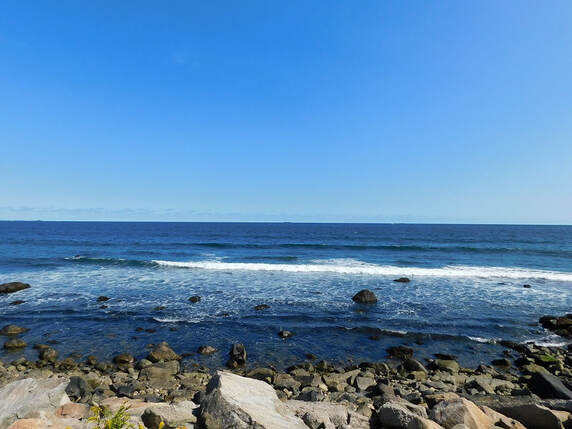

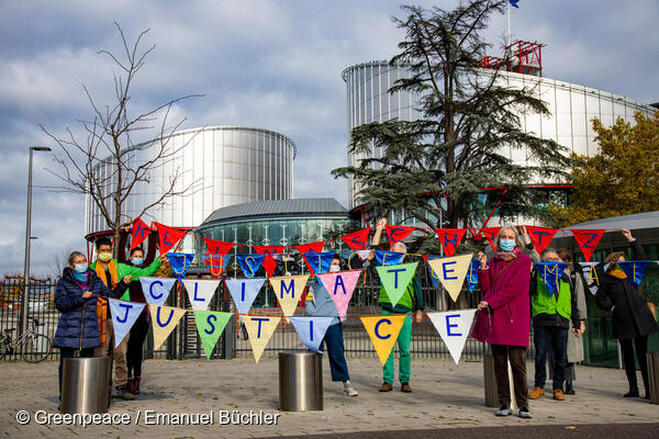
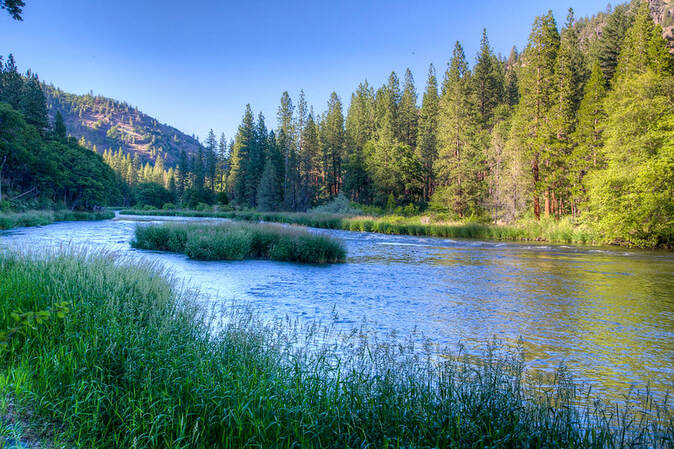
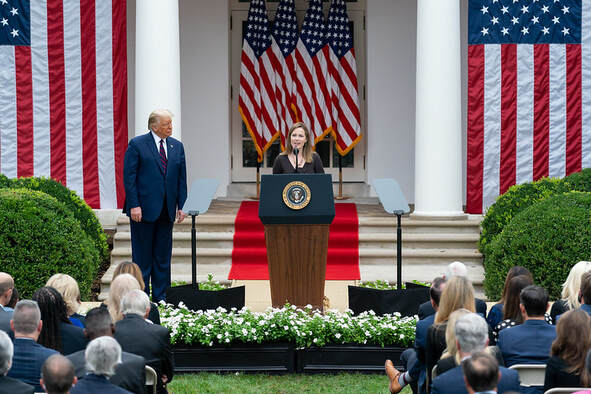
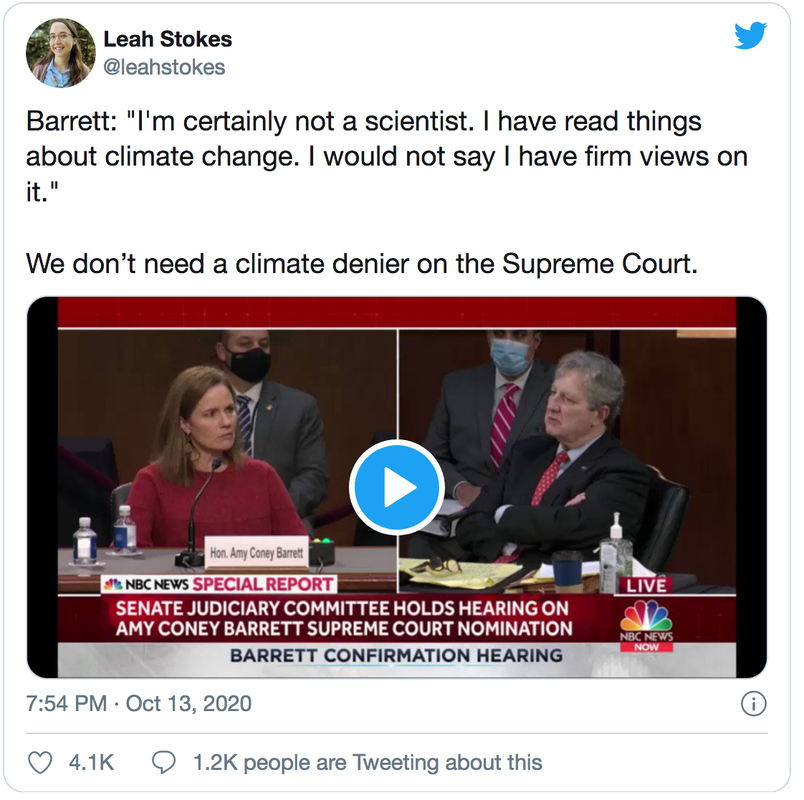
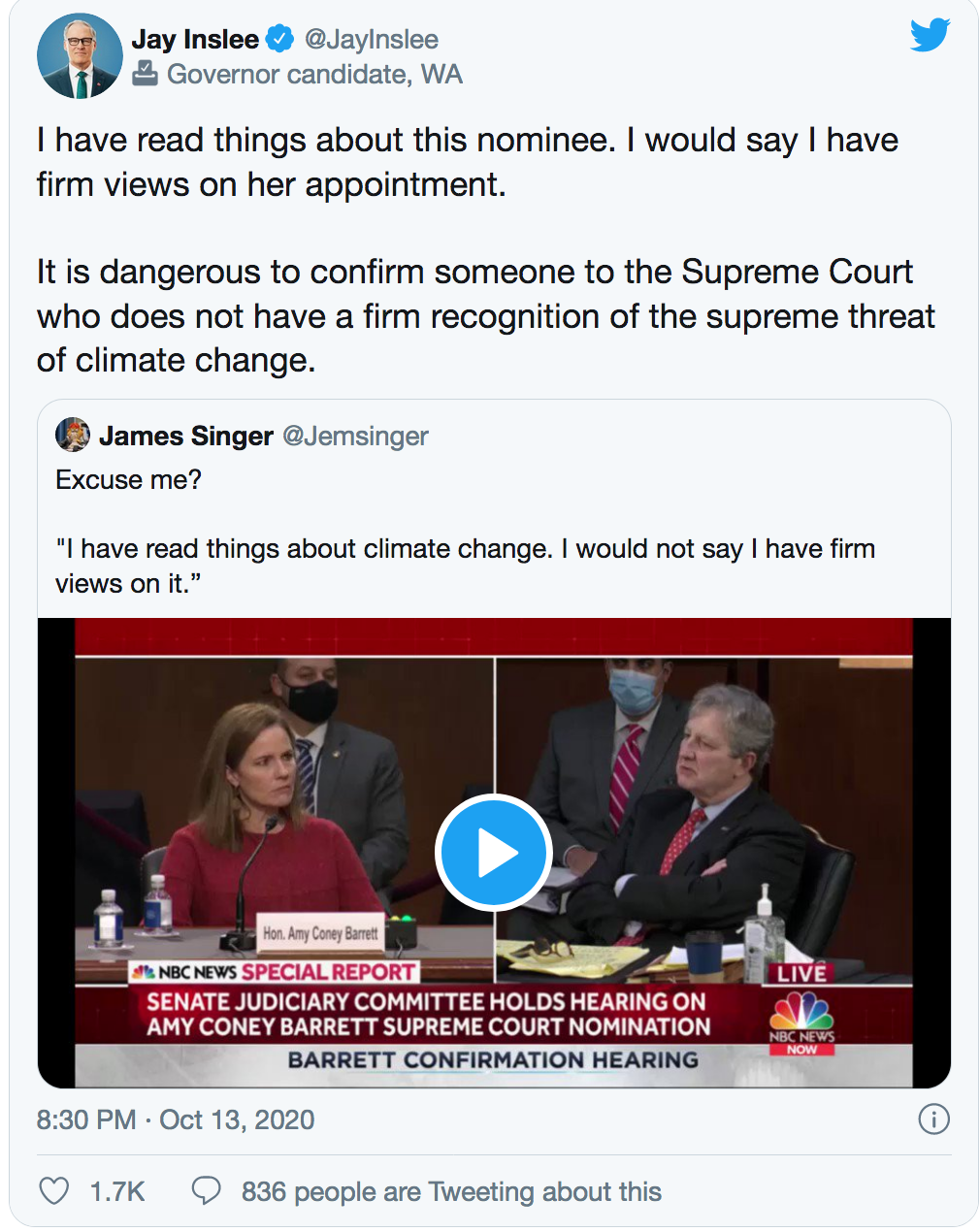
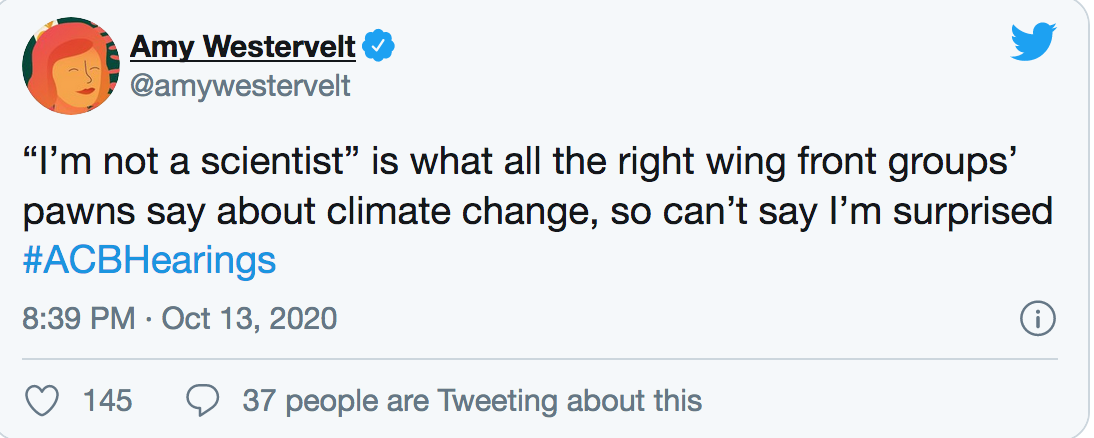
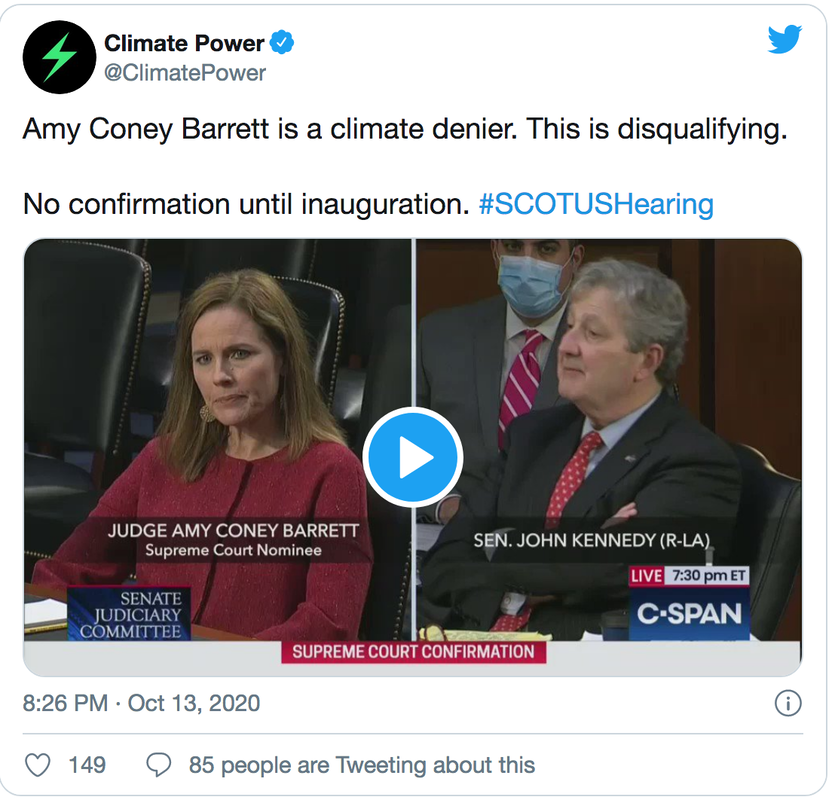

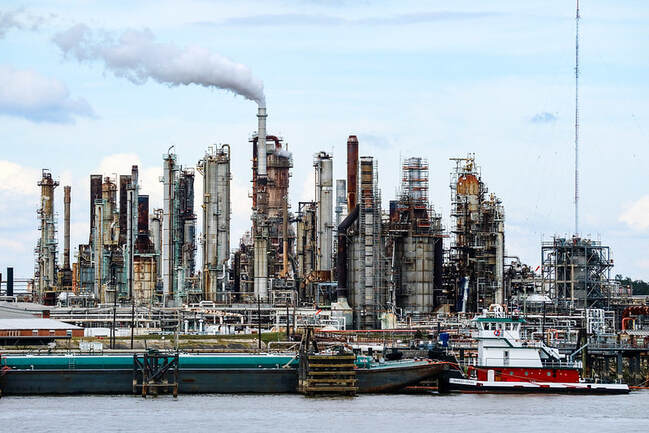
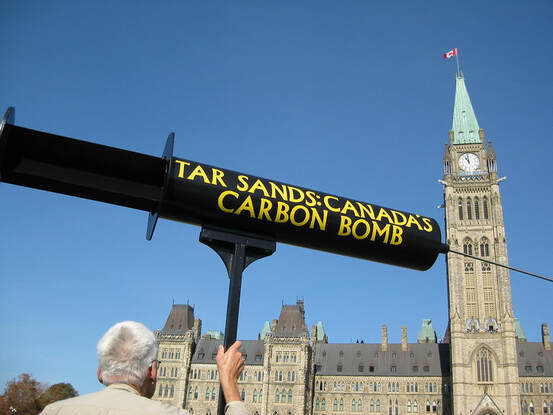
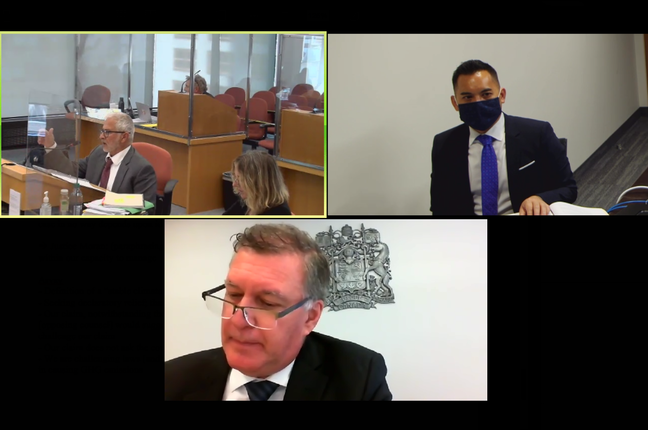
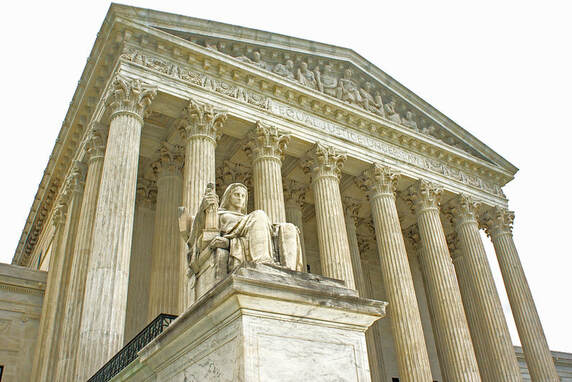
 RSS Feed
RSS Feed